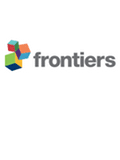
Frontiers in Chemistry
Scope & Guideline
Exploring Diverse Dimensions of Chemical Science.
Introduction
Aims and Scopes
- Synthetic Chemistry:
The journal publishes research on novel synthetic methods, including organic synthesis, material synthesis, and polymer chemistry, emphasizing environmentally friendly approaches and new methodologies. - Analytical Chemistry:
A focus on the development and application of analytical techniques, including mass spectrometry, chromatography, and sensor technology, for characterizing chemical compounds and biological systems. - Materials Chemistry:
Research on the design, synthesis, and characterization of advanced materials for various applications, including catalysis, energy storage, and biomedical uses. - Computational Chemistry:
The use of computational methods to understand chemical systems, predict properties, and guide experimental work, including molecular dynamics simulations and quantum mechanical calculations. - Biochemistry and Medicinal Chemistry:
Studies on the chemical basis of biological processes, drug design, and the development of therapeutic agents, focusing on natural products and synthetic compounds. - Environmental Chemistry:
Research addressing chemical processes in the environment, pollution remediation, and sustainable practices in chemical production and application.
Trending and Emerging
- Green Chemistry:
An increasing emphasis on sustainable practices, including the development of biodegradable materials, green solvents, and eco-friendly synthesis methods, is evident in recent publications. - Nanotechnology:
The application of nanomaterials in various fields, including drug delivery, catalysis, and environmental remediation, has seen significant growth, highlighting the importance of nanoscale research. - Photocatalysis and Photoelectrochemistry:
Research related to light-driven processes for energy conversion and environmental applications is trending, particularly in the context of CO<sub>2</sub> reduction and water splitting. - Artificial Intelligence in Chemistry:
There is a growing trend to incorporate machine learning and AI techniques to optimize chemical processes, predict molecular behavior, and streamline drug discovery. - Biomaterials and Drug Delivery Systems:
Emerging research on the development of biomaterials for targeted drug delivery, tissue engineering, and regenerative medicine reflects a significant trend towards integrating chemistry with biomedical applications.
Declining or Waning
- Traditional Organic Synthesis:
While organic synthesis remains important, there has been a noticeable shift towards more innovative and sustainable methodologies, leading to a decrease in traditional synthetic approaches. - Inorganic Chemistry:
Publications specifically dedicated to inorganic chemistry topics, particularly those focusing on classical coordination compounds, appear to be declining in favor of more interdisciplinary studies. - Basic Chemical Education:
Research articles primarily aimed at educational methodologies in chemistry have become less frequent, as the journal focuses more on cutting-edge research. - Classical Catalysis Studies:
There is a waning interest in classical catalysis research, with a shift towards more complex and hybrid catalytic systems that incorporate nanomaterials and advanced methodologies.
Similar Journals

Jordan Journal of Chemistry
Connecting Minds: Elevating Chemistry Research to New Heights.The Jordan Journal of Chemistry is a prominent publication dedicated to advancing the field of chemistry in Jordan and beyond. Published by the Yarmouk University Deanship of Research & Graduate Studies, this journal serves as a platform for researchers, educators, and practitioners to disseminate their findings in a variety of chemistry sub-disciplines. Although currently classified in Q4 of miscellaneous chemistry and ranking within the 9th percentile according to Scopus, the journal plays a crucial role in fostering academic dialogue and collaboration in the region. With its ISSN 1814-9111 and E-ISSN 2079-7249, the Jordan Journal of Chemistry offers open access to researchers from diverse backgrounds, ensuring that critical research is both accessible and impactful. By bridging local studies with global scientific advancements, this journal is poised to contribute significantly to the growth and recognition of chemistry as a key scientific discipline in the region, with convergence efforts set from 2020 to 2024.
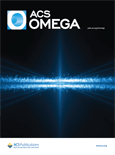
ACS Omega
Catalyzing Collaboration for Global Scientific Progress.ACS Omega is a prominent open-access journal published by the American Chemical Society that has been serving the global research community since its inception in 2016. With ISSN 2470-1343, it focuses on a wide array of topics within the realm of Chemistry and Chemical Engineering, making it a crucial platform for researchers and practitioners aiming to disseminate significant findings across these disciplines. The journal maintains an impressive standing, ranking in the Q2 quartile for both Chemical Engineering and Chemistry categories, highlighting its impact and relevance in contemporary research. Additionally, with its Scopus ranks placing it within the top 24% and 27% of General Chemistry and General Chemical Engineering respectively, ACS Omega continues to foster innovation and facilitate collaboration among scientists. As an Open Access journal, it ensures that research outputs are freely available to all, enhancing the accessibility and visibility of contributors’ work, thus playing a critical role in advancing scientific knowledge globally from its headquarters in Washington, D.C.
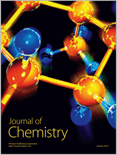
Journal of Chemistry
Advancing the Frontiers of Chemical KnowledgeJournal of Chemistry, published by Hindawi Ltd, serves as a critical platform for advancing knowledge in the field of chemistry, particularly in its miscellaneous sub-disciplines. With an impressive 2023 Scopus Rank of #123 out of 408 and positioned in the Q2 quartile, this journal exemplifies a robust academic rigor that appeals to researchers, professionals, and students alike. It features articles related to innovative chemical research and developments, catering to a diverse audience eager to contribute to the growing body of literature in the chemical sciences. The journal has been operational from 2013 to 2024, and its Open Access model ensures that findings are easily accessible to a global audience, fostering collaboration and knowledge sharing. With a commitment to quality and relevance, the Journal of Chemistry continues to play a significant role in shaping contemporary chemical research and education.
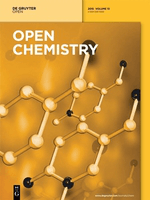
Open Chemistry
Unlocking Innovative Discoveries in ChemistryOpen Chemistry, published by DE GRUYTER POLAND SP Z O O, is a distinguished peer-reviewed journal that has been serving the global chemistry community since its inception. With an ISSN of 2391-5420 and an E-ISSN also of 2391-5420, this open-access journal has been accessible to researchers and practitioners alike since 2015, ensuring a wide dissemination of high-quality research findings. Located in Germany, specifically at BOGUMILA ZUGA 32A STR, 01-811 WARSAW, MAZOVIA, POLAND, Open Chemistry aims to publish innovative research across various chemical disciplines, with special attention to miscellaneous chemistry and materials chemistry. It is currently ranked in the Q3 category for both fields as of 2023, reflecting its solid standing within the academic community, with specific ranks of 187/408 in General Chemistry and 153/317 in Materials Chemistry, corresponding to respective percentiles of 54 and 51. Open Chemistry not only enhances the accessibility of cutting-edge research but also serves as a vital resource for students, professionals, and scholars seeking to advance their knowledge in the rapidly evolving landscape of chemical sciences.

Revista Virtual de Quimica
Elevating Chemistry Research with Global AccessibilityRevista Virtual de Quimica, published by the SOC BRASILEIRA QUIMICA, is a dynamic online journal based in Brazil, dedicated to promoting innovative research in the field of chemistry and related disciplines. Established in 2011, the journal has made significant strides in contributing to the academic landscape, receiving an impact factor that highlights its relevance, although it currently holds a Q4 quartile ranking in the miscellaneous category of Chemistry and Mathematics as of 2023. The journal is committed to open access, ensuring that scholarly articles are readily available to researchers, professionals, and students worldwide. Its focus encompasses diverse areas within general chemistry, aiming to foster knowledge sharing and collaboration among the scientific community. By providing a platform for high-quality research publications, Revista Virtual de Quimica stands as an essential resource for advancing chemical sciences and encouraging interdisciplinary studies.

Chemija
Exploring the Frontiers of Chemical Science.Chemija is a prominent journal in the field of chemistry, published by LIETUVOS MOKSLU AKAD LEIDYKLA in Lithuania. With a focus on diverse topics within the realm of chemistry, this journal aims to disseminate original research articles, reviews, and discussions that advance the understanding and application of chemical science. Although it currently holds a Q4 ranking in the miscellaneous category of chemistry, Chemija is committed to elevating its impact through the publication of high-quality research, making significant contributions to the discipline. The journal operates under a non-open access model, ensuring that articles undergo rigorous peer review to uphold academic standards. Researchers, professionals, and students are encouraged to explore the wealth of knowledge within its pages as it endeavors to bridge gaps across various subfields of chemistry from 2008 to 2024. With a dedicated readership and a growing database of insightful publications, Chemija serves as an essential resource in the ever-evolving landscape of chemical research.
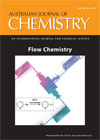
AUSTRALIAN JOURNAL OF CHEMISTRY
Fostering global collaboration in chemical sciences.The Australian Journal of Chemistry, with an ISSN of 0004-9425 and an E-ISSN of 1445-0038, is a distinguished publication from CSIRO PUBLISHING, dedicated to advancing the field of chemistry since its inception in 1948. Based in Australia, this journal serves as a platform for original research articles, reviews, and innovative studies that encompass a wide spectrum of chemical disciplines, aiming to foster communication and collaboration among researchers globally. Despite its Q3 ranking in the Chemistry (Miscellaneous) category and standing at rank #236 in Scopus’ general chemistry classification, it remains an essential resource for professionals and students seeking to stay informed about emerging trends and discoveries in chemistry. The journal does not offer open access, emphasizing the premium quality of peer-reviewed content that adheres to rigorous academic standards. By bridging theory and practice, the Australian Journal of Chemistry continues to play a crucial role in shaping the future of chemical sciences.

CHEMICAL JOURNAL OF CHINESE UNIVERSITIES-CHINESE
Empowering Researchers, Transforming Chemistry.CHEMICAL JOURNAL OF CHINESE UNIVERSITIES-CHINESE, published by Higher Education Press, serves as a vital platform for advancing research in the field of chemistry. With a history dating back to 1996, this journal has evolved to encompass a wide range of topics fundamental to the chemistry community, catering to both applied and theoretical perspectives. Although classified in Quartile 4 within the broader chemistry category, it remains a significant contributor to the knowledge base, ranking 281st out of 408 journals in the general chemistry category according to Scopus. Positioned in Beijing, China, the journal aims to foster collaboration among researchers and professionals while disseminating innovative research and developments. By promoting open exchange of ideas in chemistry, it strives to elevate the scholarly dialogue and contribute to ongoing education for students and professionals alike, with its content accessible through institutional subscriptions.

Journal of the Iranian Chemical Society
Championing Excellence in Chemical ResearchThe Journal of the Iranian Chemical Society, published by SPRINGER, is a prominent academic journal dedicated to advancing the field of chemistry. With an ISSN of 1735-207X and an E-ISSN of 1735-2428, this quarterly journal has been contributing valuable research from 2006 to 2024. Situated in Germany, it serves as a vital platform for chemists and researchers to disseminate their findings, particularly within the miscellaneous chemistry category, where it ranks in the Q3 quartile for 2023. Despite its current lack of open access options, the journal maintains a solid presence in the academic community, evidenced by its Scopus ranking of #165 out of 408 in general chemistry and a commendable 59th percentile. The journal's objective aims to foster innovation and collaboration in chemical research, making it an essential resource for professionals and students keen on pioneering developments in the field. As a subscriber, you will gain insights into cutting-edge research that drives the future of chemistry.

ChemistrySelect
Advancing the Frontiers of Chemical ResearchWelcome to ChemistrySelect, a pivotal journal in the field of chemistry published by WILEY-V C H VERLAG GMBH. With its ISSN 2365-6549, this journal aims to provide a comprehensive platform for researchers and practitioners to share significant advancements in various areas of chemistry, contributing to the ongoing dialogue and development within the scientific community. Since its inception in 2016, ChemistrySelect has focused on publishing high-quality research that spans multiple facets of the discipline, earning its place in the Q3 category for Chemistry (miscellaneous) as of 2023. While operating under a subscription model, the journal remains committed to broadening accessibility and engaging a wide audience of researchers, professionals, and students. The journal's objective is to facilitate the dissemination of groundbreaking findings through rigorous peer review, ensuring that the latest studies reflect the evolving nature of chemistry research. As we approach 2024, ChemistrySelect continues to be an invaluable resource for the academic community, positioning itself as a trusted voice in the world of chemical research.